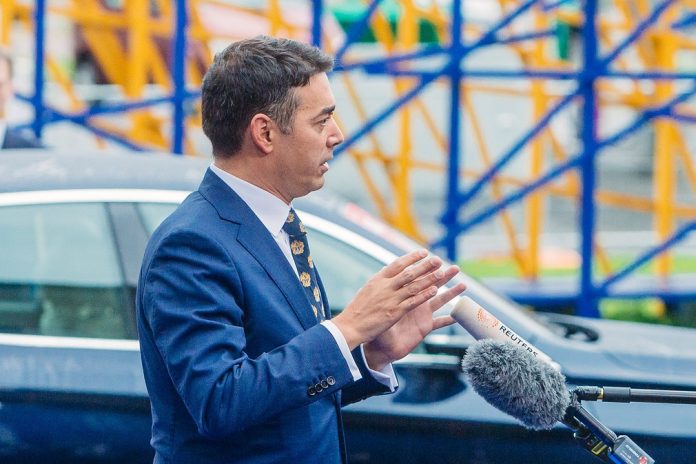The European Union and the Western Balkans gathered in London on July 10 to discuss cooperation. Heads of government and foreign ministers from the Western Balkans together with their counterparts from several EU member states and high-level EU representatives attended the London Summit.
“In these years we have been all working together to draw the region closer and closer to the European Union, politically, economically and security-wise,” said EU High Representative/Vice-President Federica Mogherini. “And we have seen remarkable results, solutions to the most difficult bilateral issues. The Western Balkans are steadily moving forward. And today we reconfirm that we are together with the region on that path, sharing the commitment towards our common future.”
Johannes Hahn, Commissioner for European Neighbourhood Policy and Enlargement Negotiations, and Commissioner for the Security Union Julian King also attended the summit.
According to a Commission press release, the focus was on the further implementation of the action plan to establish a Regional Economic Area as agreed in Trieste last year. The aim is to boost the attractiveness of the region to encourage investment and foster trade, thereby creating jobs.
Participants at the London Summit also discussed how to step up financing for SMEs and start-ups, including through the mobilisation of non-banking financing.
To support these objectives the European Commission, in cooperation with partner financial institutions, will launch a new guarantee instrument next year under the Western Balkans Investment Framework. With an initial EU commitment of up to €150m in 2019-2020, the guarantee will aim to leverage up to €1bn in investments into sustainable socio-economic development and regional integration.
The London Summit is part of the Berlin process, an initiative from several EU member states aiming at supporting efforts towards strengthening regional cooperation and the European integration of the Western Balkans.
However, in a separate report, The Guardian noted that European leaders are becoming “more and more impatient” with the reluctance of west Balkan leaders to accept the necessity of reforms to the rule of law.
The EU commissioner for enlargement, Johannes Hahn, told the summit: “I admit our member states are becoming more and more impatient on this issue because they see this is as crucial – the fight against corruption, media reform and independence of judiciary”. He said statesmanship was needed in the region if the outline timetable for accession was to be met.
But he insisted the accession of countries such as Albania, Serbia, the former Yugoslav Republic of Macedonia (FYROM), Montenegro and Kosovo into the EU represented a chance to export stability to the region, adding the alternative of the status quo will simply lead to the import of instability into the EU.
As for Nikola Dimitrov, the FYROM foreign minister and one of the most pro-reform figures in the Balkans, joining the EU is “a golden opportunity”.
Asked why his country wants to join the EU, Dimitrov said: “Perhaps those inside forget how cold it is outside.”

